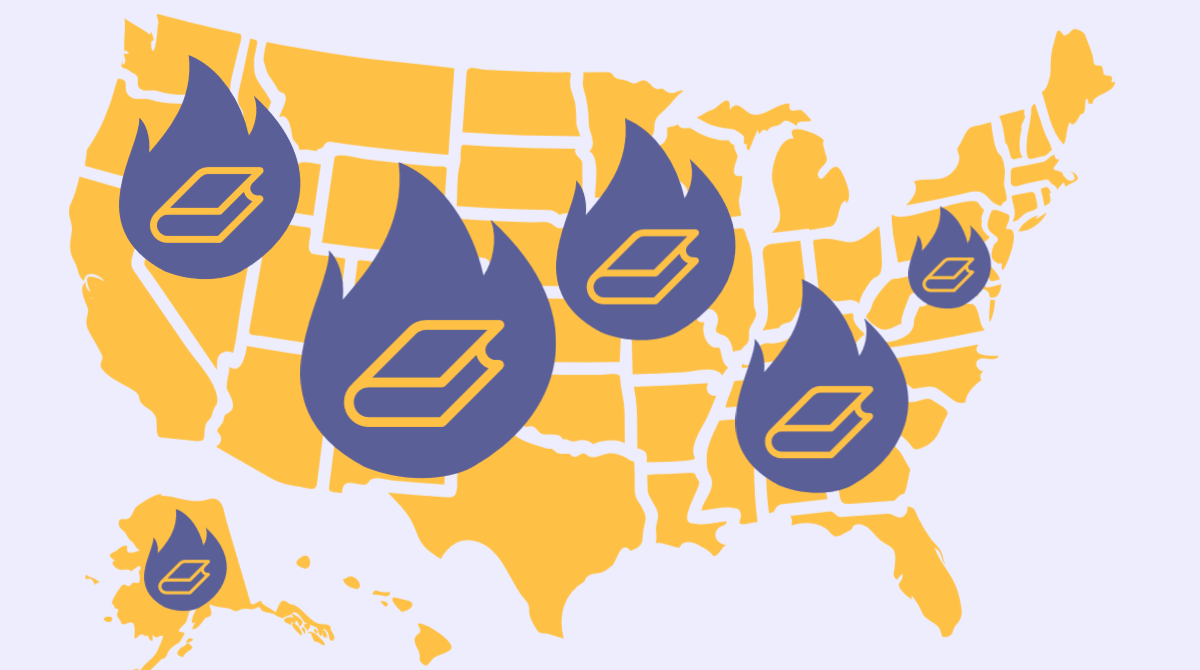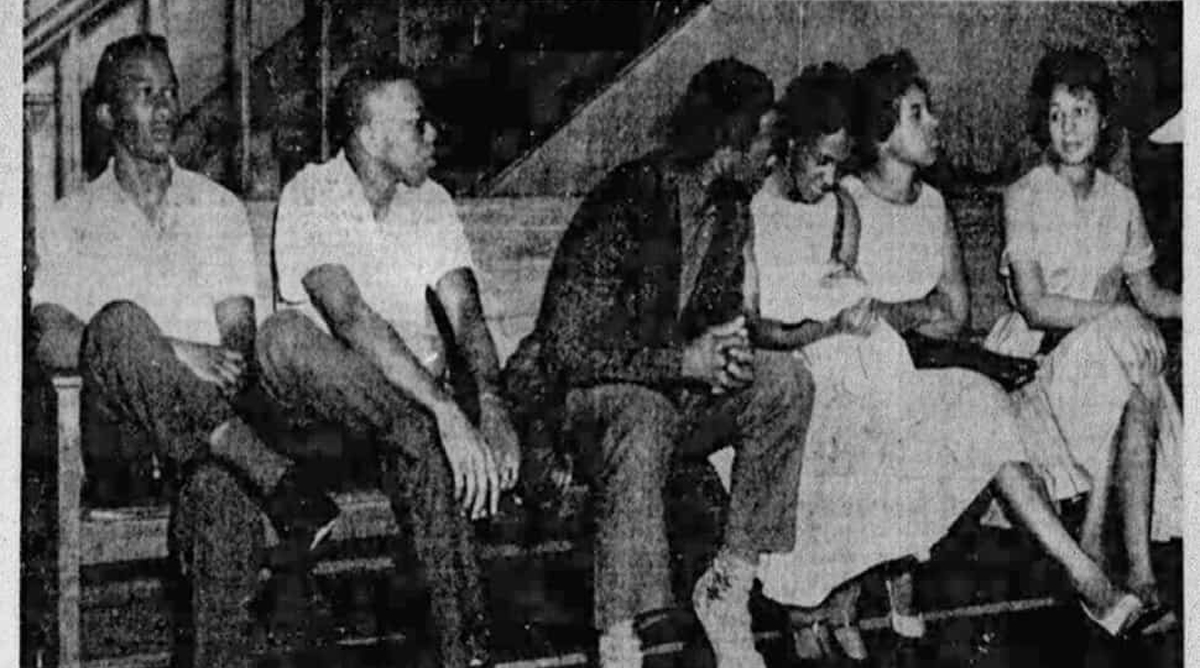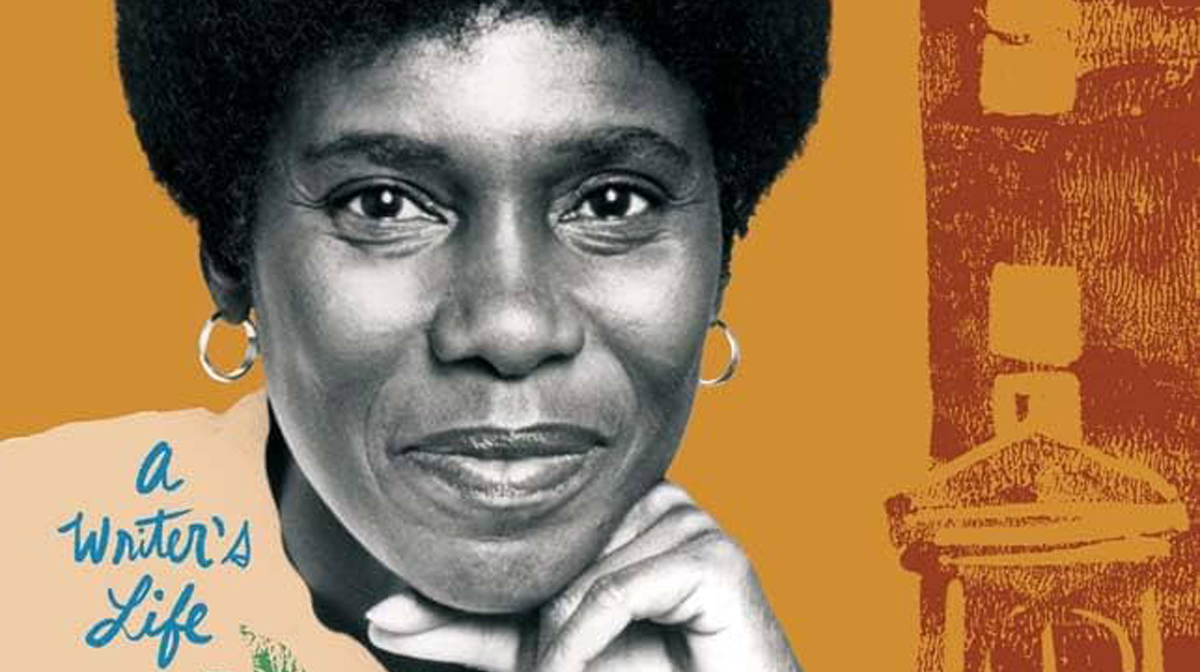Libraries and schools across the country are experiencing unprecedented levels of attempts to ban or remove books from their shelves. I Love Libraries will continue to raise awareness by highlighting attempts to censor library materials, as well as efforts by librarians, parents, students, and concerned citizens to push back against them. This report includes news from Tennessee and Texas, as well as a look at the banning of a picture book by the beloved author of “The Very Hungry Caterpillar.”
Become a Supporter
Tennessee school bans more than 100 books from libraries under state law
More than 100 books are now prohibited from library shelves in Knox County (Tenn.) Schools (KCS), reports WVLT News.
Last July, Knox County’s board of education passed a policy to remove “explicit” books from everyday student access in response to Tennessee’s Age-Appropriate Materials Act. KCS policy bans books that “contain nudity or descriptions or depictions of sexual excitement, sexual conduct, excess violence or sadomasochistic abuse.”
In total, 113 books have been removed, including “The Absolutely True Diary of a Part-Time Indian” by Sherman Alexie, “The Kite Runner” by Khaled Hosseini, “Gender Queer” by Maia Kobabe, “The Bluest Eye” by Toni Morrison, “ A Light in the Attic” by Shel Silverstein, and “Slaughterhouse Five” by Kurt Vonnegut. WVLT obtained the full list, which can be read here.
Texas parents, school boards may have more control over school library books thanks to House bill
The Texas House approved a bill on May 21 that would give Texas parents and school boards—not school librarians—a bigger role over what books students can access in public school libraries, reports the Texas Tribune.
Senate Bill 13 would give school boards the final say over what materials are allowed in their schools’ libraries by creating a framework for them to remove books based on complaints they receive. The bill would allow school boards to oversee book approvals and removals or delegate the responsibility to local school advisory councils if 20% of parents in a district sign a petition allowing their creation.
The bill also includes definitions for what constitutes harmful material and indecent content, which led Democratic representatives to express concerns about overzealous bans on books.
Rep. James Talarico, D-Austin, pointed to language in the bill that requires approved books to adhere to “local community values,” which he said could lead small, vocal groups of people to limit students’ book access. He said titles often taught in public schools could end up banned under some of the bill’s vague and subjective interpretations.
“If your answer to ‘could Romeo and Juliet be banned,’ if it is anything other than ‘of course not,’ then that is a serious problem,” Talarico said.
Appeals court reverses ruling in Texas book ban case
The United States Court of Appeals for the Fifth Circuit has reversed a district court’s preliminary injunction and dismissed free speech claims in Little v. Llano County, reports Publishers Weekly. Filed in April 2022 by seven Llano, Texas, library patrons, the lawsuit concerns the removal of 17 books from the Llano branch library.
In their majority opinion on May 23, 10 members of the Fifth Circuit agreed that “plaintiffs cannot invoke a right to receive information to challenge a library’s removal of books,” a decision that contradicts established anti-censorship law including the Supreme Court’s 1982 decision in Board of Education v. Pico. Although the majority contends that “Supreme Court precedent sometimes protects one’s right to receive someone else’s speech,” they believe plaintiffs want to “transform that precedent into a brave new right to receive information from the government in the form of taxpayer-funded library books.”
Seven of the 10 judges in the majority also joined the opinion that “a library’s collection decisions are government speech and therefore not subject to Free Speech challenge.” In their view, “libraries curate their collections for expressive purposes” and “their collection decisions are therefore government speech.”
Seven members of the Fifth Circuit filed a 36-page dissent.
“Today, a majority of our court sanctions government censorship in every section of every public library in our circuit,” the dissenting judges wrote. “As counsel for Defendants acknowledged in oral argument, there is nothing to stop government officials from removing from a public library every book referencing women’s suffrage, our country’s civil rights triumphs, the benefits of firearms ownership, the dangers of communism, or, indeed, the protections of the First Amendment.”
The American Library Association and the Freedom to Read Foundation issued a joint statement saying they are “deeply disappointed” by the decision, which “is in direct conflict with longstanding legal precedent and with recent rulings issued by the Eighth Circuit and other district courts that have considered these issues.”
Plaintiffs have 90 days following the decision to decide whether to appeal to the Supreme Court.
On the banning of beloved children’s book author Eric Carle
Lisa Tolin writes for LitHub:
“Spend any time scanning a list of banned books and you’ll find some head-scratchers: picture books challenged for including seemingly gay characters in the background, or describing a difficult moment in history, or revealing a naked goblin butt. Among the most banned picture books of the last school year, one title in particular seemed puzzling: Eric Carle’s ‘Draw Me a Star.'”
The beloved author of “The Very Hungry Caterpillar” and other works has come under fire in some states for some of the drawings in “Draw Me a Star.” Tolin continues:
“’Draw Me a Star” tells the story of an artist creating his way through the world. “Draw me a star,” it begins, and the artist draws a star. The star asks him to draw a sun, and eventually a woman and a man: ‘And the artist drew a handsome couple.’
“The couple is indeed handsome, drawn in Carle’s trademark, flat collage style. Alas for children in school districts in Florida, Iowa, and Texas, the couple is also naked. The book has been banned in at least four school districts since 2021, and other schools have covered the handsome couple in paper clothes.
“What those who redact Carle’s childlike art probably don’t realize is that it was inspired by his own response to censorship growing up in Nazi Germany. ‘Hitler dictated not only politics and everything, he also dictated art,’ he told NPR in 2011.”
Take action
Alarmed by the escalating attempts to censor books? Here are five steps you can take now to protect the freedom to read.
- Follow news and social media in your community and state to keep apprised of organizations working to censor library or school materials.
- Show up for library workers at school or library board meetings and speak as a library advocate and community stakeholder who supports a parent’s right to restrict reading materials for their own child but not for all
- Help provide a safety net for library professionals as they defend intellectual freedom in their communities by giving to the LeRoy C. Merritt Humanitarian Fund.
- Educate friends, neighbors, and family members about censorship and how it harms communities. Share information from Banned Books Week.
- Join the Unite Against Book Bans movement and visit our Fight Censorship page to learn what you can do to defend the freedom to read in your community.
Subscribe to the I Love Libraries newsletter! You’ll get news from the library world, advocacy updates, author interviews, book lists, and more delivered to your inbox every month.

Your support of the American Library Association makes a difference in libraries across the U.S. Join us and become an ALA supporter today.


